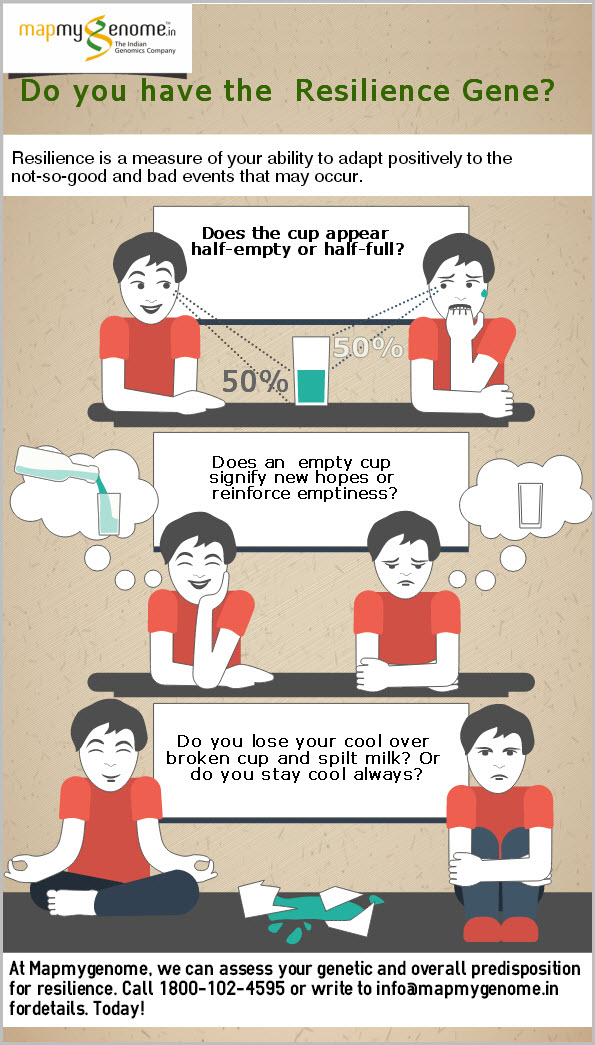Know Your Resilience
Oct 15, 2015
30269 Views
We all show different reactions to a situation or event in life. In face of adversities, some of us bounce back with determination, some take time and try to make the best of the situation, and yet others go to pieces. One factor that determines the course of our reactions is resilience, our adaptability to tackle tough situations in life.
Resilience is a quality that empowers us and keeps us going in tough situations. The importance of nurturing resilience in children cannot be stressed enough. It keeps people growing through the positives and negatives in life. It is this quality that prevents many from turning to addictions and substance abuse during trauma. Studies have even linked attempted suicides to lower resilience.
Factors that impact resilience
- Genes: Certain variants at a specific location on COMT (catechol-o-methyl-transferase) gene are associated with greater resilience, while other variants are associated with vulnerability.
- Nurture: Psychiatrists, psychotherapists, paediatricians, and teachers today stress the importance of nurturing this trait in children. Parents are often encouraged to build self-esteem to become better role models for their children.
- Self-image: People with good self-esteem and self-worth are more likely to be more reslient, while feelings of worthlessness and poor self-image are associated with vulnerability.
- Self-efficacy: People who believe they are more capable of facing situations and performing tasks are more likely to be resilient.
- Behaviour: Social skills, communication, empathy, flexibility — all contribute to this trait.
- Supportive environment: A strong, supportive environment at home and among friends can help people in the toughest of the situations to bounce back.
- Health: Physical and mental health can also have an impact, especially in tough situations.
Learning about your resilience

Are you curious about your resilience scores? We offer two methods to learn more about resilience.
Genetic tests
Our predictive genetic tests – Genomepatri and BrainMap analyze your DNA for a specific variant on the COMT gene. This gives the genetic component of your resilience, which remains the same throughout your lifetime. This marker is also associated with anxiety levels, pain threshold, and empathy.
A gene variant causes an amino acid change from Valine to Methionine – the altered gene sequence affects an individual’s coping mechanism, emotional well-being and the ability to withstand and overcome difficulties. The COMT enzyme is responsible for the breakdown of norepinephrine and dopamine, a key neurotransmitter(“chemical” involved in brain signalling). Neurobiologists have discovered that the Val158Met base change in the COMT gene results in reduced enzyme activity (3-4 fold) and increased dopamine levels.
Building resilience
The good thing about resilience is that it can be nurtured at any given point in life. History is filled with examples of people who have overcome the worst tragedies ever and lived to tell their tale. Understanding and measuring resilience is of great value, as it can be the differentiator between life and death, triumph and disaster.
